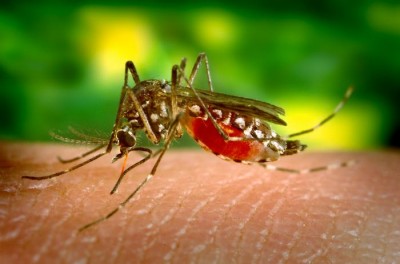|
Listen To The Article
|
 The Chikungunya virus is invading the United States. Can’t pronounce the name and totally unfamiliar with the virus? You are not alone, but now is the time to get educated about the threat.
The Chikungunya virus is invading the United States. Can’t pronounce the name and totally unfamiliar with the virus? You are not alone, but now is the time to get educated about the threat.
The Chikungunya virus is a mosquito-borne illness that prompts intense pain and high fevers, and it is also spreading in Canada and Mexico. Patients ill with the virus are now present in nearly 20 countries. There is no cure.
In the United States, 25 people already have caught it. The vast majority of the Chikungunya virus cases are in Florida and believed to have spread from individuals who became ill while traveling outside of the country. According to the Centers for Disease Control and Prevention (CDC) it is only a matter of time before the dangerous virus impacts native mosquitoes.
The Chikungunya virus was first identified and diagnosed in Tanzania in 1952. During the past few decades the disease has remained concentrated in the Arabian Peninsula, Southeast Asia, and Sub-Saharan Africa. The massive influx of cases is both a new and disturbing trend. In the Makonda language, Chikungunya means to be “bent out of shape.” The name was likely given to reference the contortions of the body due to the severe joint pain often associated with the virus.
Learn How To Make Your Own Emergency Remedies For Use In Any Survival Situation …
Most commonly, the infected mosquitoes are of the Aedes aegypti and Aedes albopictus species. Both types of mosquitoes are typically found in the United States. These species of mosquitoes tend to bite not during the dusk, dawn, or night but during the daytime. Unlike the species of mosquitoes which spread Malaria, the Chikungunya-spreading mosquitoes are most commonly found in urban areas and reportedly thrive in a metropolitan environment.
Last year health officials discovered that “sustained transmission” of the Chikungunya virus was occurring in the Caribbean. The tropical locale is popular with American tourists, meaning the likelihood of an uptick in cases was forthcoming.
Story continues below video
“The mosquitoes that transmit this infection are pretty widespread around the world, and that’s why the infection has been able to spread across the tropical Pacific and now into the Caribbean,” said Jorge Parada, medical director of the infection prevention program at Loyola University. “And there’s absolutely no reason why this infection can’t spread to more of South America and the southern United States. The bad news is: It is a not fun infection. But the good news is you’re not going to die from it. Many people would say this is more uncomfortable than catching the flu, but unlike the flu, this won’t kill you. So you have to take it in that context.”
Parada also offered this warning about the mosquito virus:
If you have the virus circulating in your bloodstream, the mosquito sucks your blood, acquires the virus, and if it feeds again, there’s always some level of regurgitation of the prior meal. Then they inoculate us with the virus, so we can then get infected … The key thing is it tends to give you a lot of joint pain. There’s a saying that, ‘It won’t kill you, but you may wish you’re dead.’
After a person have been infected with the Chikungunya virus, an incubation period of at least three and up to seven days begins. Symptoms of the virus are not present during the incubation period. In addition to fever, many patients experience severe joint pain, joint swelling, rashes, muscle aches and headaches, Fox News reported.
The elderly, very young, and pregnant women are particularly susceptible to severe symptoms of the mosquito virus.
Do mosquito viruses concern you? How do you protect yourself from mosquitoes? Tell us in the comments section below.
Sign up for Off The Grid News’ weekly email and stay informed about the issues important to you
 Off The Grid News Better Ideas For Off The Grid Living
Off The Grid News Better Ideas For Off The Grid Living




